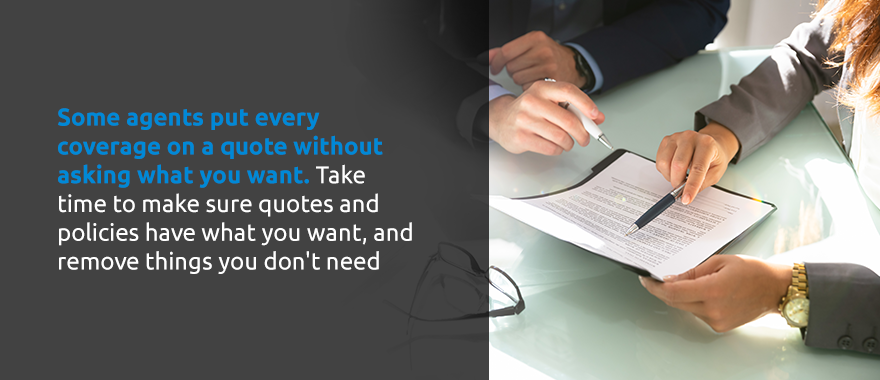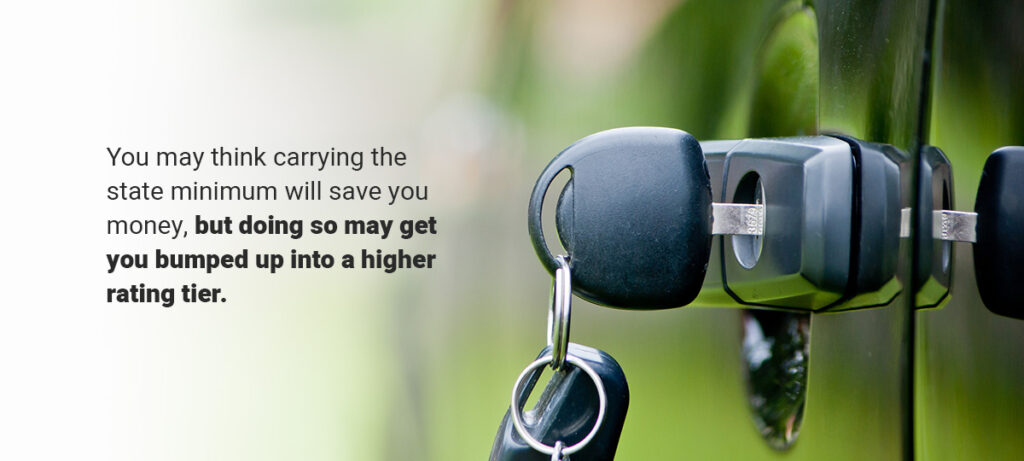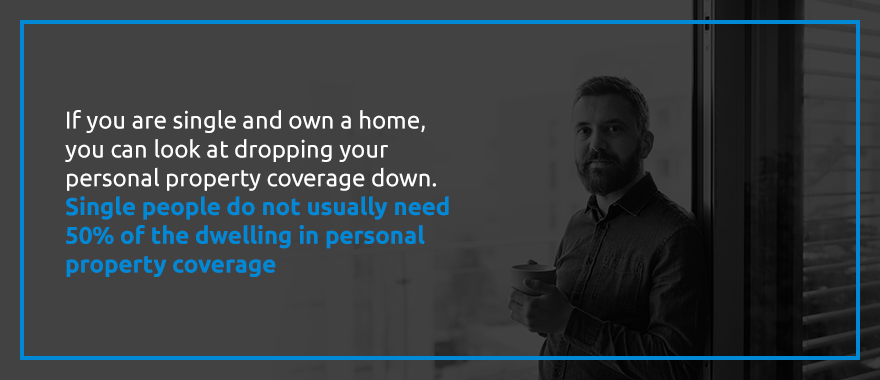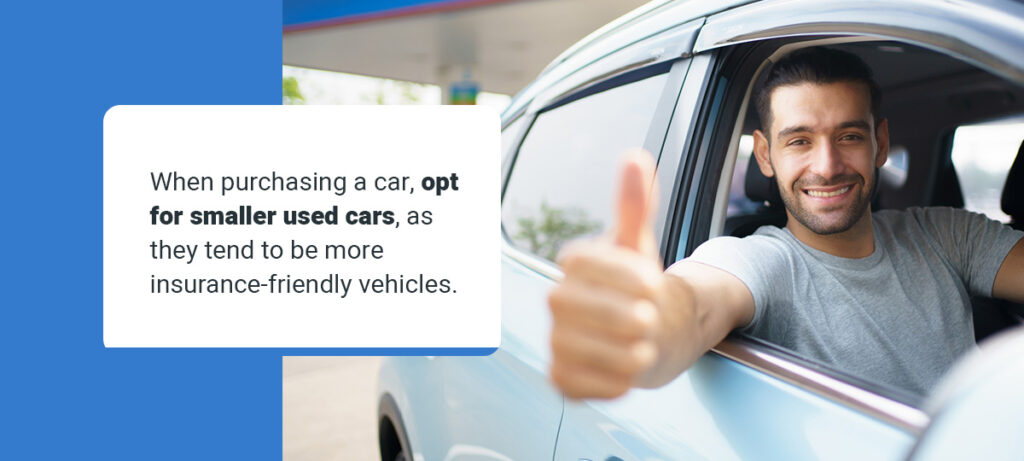
From auto to home to life insurance, your insurance agent can save you money in various ways. Your assets deserve the best coverage possible, but you also don’t want to spend more than necessary on your policies. By knowing what impacts your rates and how your insurance agent can get you a better deal, you can find good coverage without breaking the bank.
Most vehicle owners or homeowners want to save money on their car or home insurance. That’s why we’re providing this list of several strategies your insurance agent can use to help you do so.
While insurance companies employ many underwriters and actuaries to crunch numbers, the agents know all the ins and outs of the information you need. They’re well-versed in their company’s guidelines, have extensive knowledge of the products they offer and they’re always answering client questions. It’s no wonder an independent agent can save you more money than you may realize.
Here are 23 insurance tips and tricks you can use to save money on your insurance.
You don’t want to waste your time, and neither should your insurance agent. Respect everyone’s priorities by sending an agent your current coverages and rates. Now is also an excellent opportunity to discuss your budget, so they immediately know what you’re looking for. If the agent can’t lower your rate, they will probably tell you upfront. No reputable agent will try to barely beat your rate, and if they do, another agent can likely give you a lower quote.
Agents can also evaluate your coverage to determine if you are paying for something you don’t need. Sending an agent your coverage also helps them understand what you need or are looking for so they can include it in a new quote.

Since car insurance rates can vary by several hundred dollars for the same level of coverage among insurance companies, it’s a smart strategy for drivers to shop around for the best rates. If you could save $100 a month as a good driver merely by switching to a different insurer, wouldn’t you?
Remember, a company’s rates also vary by location. One company may offer the lowest rate in one state but have the highest in another. Your credit and driving history will also affect which insurer offers you the cheapest rate.
Don’t tell the agent you shop around every year in an attempt to get cheaper insurance. That indicates you do not value their time or service. Switching your insurance every year is also a bad idea because it makes you ineligible for longevity discounts from other companies. It’s typically a good idea to check about every three years or have a broker who reviews all renewals.
Get quotes a minimum of two weeks before they’re due. If you shop around at renewal time, you can save a percentage on your policy by signing up a week before the policy goes into effect. Once you receive your renewal information, compare coverages and premiums at other carriers.
Since companies tend to send renewal information out a few months before a policy expires, you’ll have time to research and gather quotes, along with making an appointment with your agent so you can discuss your current coverage. At this time, you may also want to assess any homeowners and umbrella policies you have. It could be the ideal time to move your policies to the same company for major savings.

Insurance companies generally provide the option to pay your premium monthly, but this convenience typically comes with an added cost. By paying annually or every six months, you can save up to 15% on your auto premium. While putting aside enough money to pay the lump sum all at once may require some discipline, you can realize significant savings with this payment method.
Use a credit card with 0% interest for a while if you can’t afford the full amount, then divide that amount by six or 12. You may also want to automate your monthly payment through your bank. Some companies take PayPal Credit for renewals, and PayPal’s line of credit offers a promotional rate that gives you 0% interest for six months on purchases.
Having a new teen driver in the household tends to strike fear in the hearts of parents, and for a good reason. While you may be able to get some discounts, such as for driver training and being a good student, teens are still expensive to insure.
Since adding a teen to your car insurance policy can increase your premium, start shopping around for rates that include your teen driver before they get their license. Find out how much your premium would increase with your current provider, and reevaluate your policy with an agent to see if there are any missed savings. From there, you can explore other providers’ rates and discounts to potentially find a lower rate. Starting this search before your teen gets their license gives you time to switch before adding them to your policy.

Your property value may have increased since you initially insured your home. If this is the case, you may not need more insurance coverage. The inflation guard will periodically and automatically increase the amount of insurance coverage on your property, along with increases for inflation every quarter during your policy term.
You may also want to ask your agent if the inflation guard went over the replacement cost estimator. This fix is simple — sometimes, the precalculated inflation guard can cause your home to be more than $50,000 over the replacement cost.
You either pay for accident forgiveness on your policy, or you must be with the company for at least five years. An agent knows an insurance contract represents the insurance company’s and policyholder’s interests. Though this doesn’t mean the insurer is your enemy, they also need to look out for their interests. If you file a claim after an accident, the insurer will keep a closer eye on you after settling your claim.
Remember, insurance companies are in business to make money, so none of your coverage or accident forgiveness is complimentary.
Insurers will generally offer discounts if you get some combination of your auto insurance, home insurance, life insurance and commercial insurance from them. That’s because the costs of providing customer service and maintaining your records link to your original policy, so your additional policies will be less costly for the insurance company. Having multiple policies also makes customers less likely to leave the insurer, as it’s more difficult and time-consuming for them to switch all their policies.
Combining policies, or bundling, can vary among insurance providers — for example, some may give you a discount for insuring two cars, while others may require you to have two or more different types of policies to qualify for a bundling discount. Before adding another policy, talk to an agent about bundling — most people find this strategy is more cost-effective than paying for two separate policies with different providers.

If you’re young and healthy, do you need life insurance? Should you select term or whole life insurance? How much coverage is enough to protect your loved ones? With a mortgage on your house, what will you need for homeowners insurance? What is sufficient coverage for your property? Look out for any unneeded packages an insurer may try to provide you. When you decide to find insurance coverage, you’ll want to go into the process understanding your needs.
Unlimited loss of use in a year is a gimmick. Most companies offer $60,000 or more, and it is challenging to use more than that in a year to stay somewhere else while your home gets repaired or rebuilt. Some agents put every coverage on a quote without asking what you want. Take time to make sure quotes and policies have what you want, and remove things you don’t need.
If you don’t have a daily commute or typically drive long distances, usage-based insurance may be an option to help you save money on car insurance. Usage-based coverage typically involves installing a device or app that tracks your driving and reports it to your insurance. You may pay a base premium and per-mile rate, which can save you money if you don’t drive much.
Many insurance providers offer discounts if you have a specific degree, profession or university affiliation. Whether you’re shopping for a new policy or updating your information with your current provider, be sure to mention if you have a college degree or graduate work, are self-employed, work as a nurse or teacher or are involved in your university’s alumni program. Sharing more about your life and career can help your agent find hidden discounts for you.

While insurance agents don’t have control of your policy’s price, they can save you money in other ways. Finding an agent with keen problem-solving instincts and who goes beyond the role of a salesperson can help you get more personalized recommendations about protecting your financial interests. For example, with some companies, the discount for adding an umbrella policy is higher than what the umbrella policy costs. A knowledgeable, problem-solving agent can provide you with that information.
If your goal is to have a low annual payment on your insurance, it’s almost always to your advantage to look for at least a $500 deductible for auto and a $1,000 deductible for home. You can save money on home or auto insurance by increasing the deductible on your comprehensive and collision coverage. The deductible is the amount the insurer doesn’t cover for repairs — this is the amount you are responsible for. If you don’t end up in an accident, you’ll save additional money. For cheaper cars, you may opt to get only liability coverage.

You may think carrying the state minimum will save you money, but doing so may get you bumped up into a higher rating tier. If you get in an accident, you also may be subject to much higher financial responsibility without sufficient coverage.
Going paperless can result in a discount on your premium. After switching to digital, you will receive your billing statements and policy documents electronically. Insurance companies save money when they don’t have to bill by snail mail, and you save money with the discount provided. Most agents will also print and mail documents for you if you ask them to.

You’ll find a way to lower your auto insurance premium through discounts at every insurance company. To ensure you’re receiving every discount you qualify for, ask your insurance agent to review areas of possible savings. For example, plug-in devices or mobile apps offer a percentage discount. Participating in these safe driver programs is a wise idea, and the discounts are permanent for the policy’s life. They are also easy to take advantage of. Just make sure you drive extra cautiously when you have the device plugged in or use the app.
Some insurance companies offer other discounts based on the following factors:
You may also qualify for good student discounts, military member discounts or federal government employee discounts. If you’re not sure about all your options, don’t be afraid to ask your insurance agent.

If you are single and own a home, you may consider lowering your personal property coverage. Single people do not usually need 50% of the dwelling in personal property coverage. For example, a $300,000 home would give you $150,000 in personal property.
You also shouldn’t conflate what you paid for your home and land with what it will cost you to rebuild. Your land is not at risk due to theft, a windstorm or other damages your policy covers. If you want a lower premium, don’t include land value when deciding how much homeowners insurance you need.
If you’re driving a low-value vehicle, you may want to consider dropping your comprehensive and collision insurance. Comprehensive insurance covers you if your car gets stolen or damaged by vandalism, storms or an animal. Collision insurance covers you if your car needs repairs after crashing into an object or another vehicle. If your vehicle isn’t worth the cost of your deductible and annual coverage, you may want to drop your comprehensive and collision coverage.
These coverages don’t pay out more than the car’s value, so consider whether the coverage is worth the small amount of reimbursement, if you get any at all. After canceling this coverage, set aside the money you otherwise would have spent on that insurance to fund your next car purchase or future repairs. If you need help determining whether this coverage is worth it for your situation, you can discuss your options with your insurance agent.

Some vehicles are inherently more expensive to insure, especially newer cars that cost more to repair. Bigger vehicles also tend to cost more to insure because they’re more complex to repair and require more expensive parts. When purchasing a car, opt for smaller used cars, as they tend to be more insurance-friendly vehicles. Your insurance agent can also tell you how much a specific vehicle may affect your premium before you buy.
Many home insurance providers offer discounts for home security measures like smoke detectors, deadbolt locks, burglar alarms and more. Security cameras, motion sensors, flood lights and other monitoring systems are more substantial investments, though they significantly improve home security and may earn you a discount. When protecting your property, you’re helping reduce the risk of insuring it, so providers are more willing to offer discounts.

Of course, we can’t discuss insurance savings if we don’t mention driving history and habits. Your driving history may limit an insurance agent’s ability to provide you with the best possible rate and discount. Car accidents and traffic tickets increase auto insurance rates. If it’s possible for you to keep the citation off your record, such as by going to traffic school, you can save hundreds on insurance over the years.
Don’t make the mistake of believing insurance companies rely on the honor system when they ask you if you’ve gotten any tickets or how long you commute daily. They’ll double-check all the information you provide. An agent also knows the insurance company pulls more than your motor vehicle record, claims history or credit history — they’ll also check your vehicle registration, mileage, current carrier, whether you own a home and if any undisclosed drivers live with you. Agents also know whether these reports come into play when calculating your insurance score.
So don’t bother hoping that not disclosing relevant information about your driving will save you money on your auto insurance. Your agent knows the system well, and they stand a much better chance of finding you discounts.
Do your best to avoid smaller claims that can raise your rates. If possible, try to pay to fix minor damage yourself, so you won’t increase your premium by filing multiple claims. Insurance companies must follow strict regulations, so your insurance agent won’t be able to stop your rates from increasing if you make a claim every time your car winds up with a ding at the grocery store. Your insurance policy covers you for extensive damages and repairs, so try to treat it as such and self-cover minor fixes as often as possible.
Your agent will also know of some types of claims that get rejected. For example, if your spouse hits your car on purpose, your claim will get denied due to intentionality. If you damage your vehicle doing something risky like off-roading or racing, your claim will likely get denied. If you’re unsure about what claims might get rejected, talk to your agent.
If you currently or plan to give rides in your vehicle, you’ll probably void your auto insurance. Your insurance agent should be able to point out the part of your policy that explains the lack of coverage when using your car for transporting people or goods for payment. This “for-hire,” “livery” or “for a charge” exclusion essentially means you are liable for any damages if you get involved in an accident while hiring out your vehicle.
Your agent will also know whether their insurance company has policies that specifically exclude ridesharing programs for personal vehicles.
If you’re looking for an independent insurance agent in Missouri and surrounding states, contact us at David Pope Insurance Services, LLC, today. We’ll find you affordable policies for your vehicle, home, life and commercial needs. Request a free insurance quote or call us at 636-583-0800 today!
If you’re looking for an independent insurance agent in Missouri and surrounding states, contact us at David Pope Insurance Services, LLC today. We’ll find you affordable policies for your vehicle, home, life and commercial needs. Request a free insurance quote or call us at 636-583-0800 today!